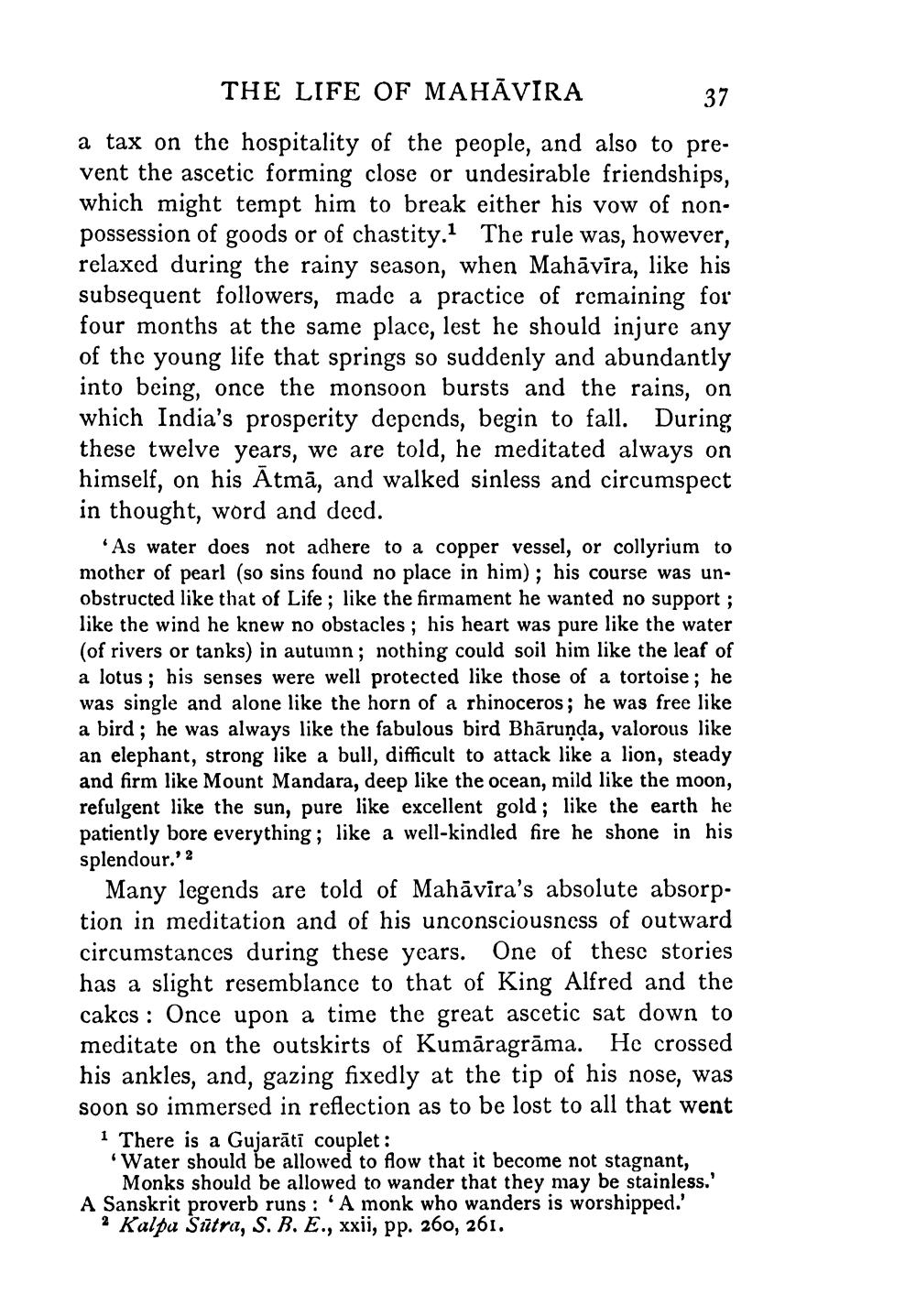________________
THE LIFE OF MAHĀVIRA
37
a tax on the hospitality of the people, and also to prevent the ascetic forming close or undesirable friendships, which might tempt him to break either his vow of nonpossession of goods or of chastity. The rule was, however, relaxed during the rainy season, when Mahāvira, like his subsequent followers, made a practice of remaining for four months at the same place, lest he should injure any of the young life that springs so suddenly and abundantly into being, once the monsoon bursts and the rains, on which India's prosperity depends, begin to fall. During these twelve years, we are told, he meditated always on himself, on his Ātmā, and walked sinless and circumspect in thought, word and deed.
As water does not adhere to a copper vessel, or collyrium to mother of pearl (so sins found no place in him); his course was unobstructed like that of Life ; like the firmament he wanted no support; like the wind he knew no obstacles; his heart was pure like the water (of rivers or tanks) in autumn; nothing could soil him like the leaf of a lotus; his senses were well protected like those of a tortoise; he was single and alone like the horn of a rhinoceros; he was free like a bird; he was always like the fabulous bird Bhārunda, valorous like an elephant, strong like a bull, difficult to attack like a lion, steady and firm like Mount Mandara, deep like the ocean, mild like the moon, refulgent like the sun, pure like excellent gold; like the earth he patiently bore everything; like a well-kindled fire he shone in his splendour.'2
Many legends are told of Mahāvira's absolute absorption in meditation and of his unconsciousness of outward circumstances during these years. One of these stories has a slight resemblance to that of King Alfred and the cakcs : Once upon a time the great ascetic sat down to meditate on the outskirts of Kumāragrāma. He crossed his ankles, and, gazing fixedly at the tip of his nose, was soon so immersed in reflection as to be lost to all that went 1 There is a Gujarāti couplet: Water should be allowed to flow that it become not stagnant,
Monks should be allowed to wander that they may be stainless.' A Sanskrit proverb runs: 'A monk who wanders is worshipped.'
2 Kalpa Sutra, S. B. E., xxii, pp. 260, 261.




